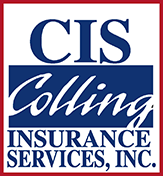New Homeowners in the Lakewood, Colorado and surrounding areas will discover they may have to deal with many environmental issues such as earthquakes, wildfires, floods and hurricanes; the homeowner is going to pay more than the average homeowner. They will need an independent agent to help them sort thorough issues covering their unique needs.
Clients who reside in this area will have to do a lot of shopping and comparison of insurance rates in order to find the best rate for them. The internet offers a homeowners insurance network in Lakewood, where the process has been streamlined to help homeowners find the best rates for their unique needs in a homeowner’s policy. The homeowner will need to remember that the best rate is not necessarily the best policy that will fit them.
Homeowners will need to pick an insurance policy that will fit their specific needs. There are many things to decide upon when considering a policy. Be sure to get the best out of your policy for the least amount of money.
A typical homeowners insurance policy will cover damages done through episodic events such as, fire, explosions, smoke damage, lightning, vandals, theft of possessions including check and illegal use, use of stolen credit cards, objects falling on the home and causing damage, weather related issues such as ice, rain, snow, sleet, and wind, riot damage, volcanoes, plumbing mishaps due to frozen pipes, bursting of plumbing and hot water heater causing water damage, heating malfunction and power surges.
Also, possibly covered depending on the policy, is food spoilage, replacement of door locks, removing debris and temporary repairs. A homeowner may or may not have to add these into their policy, find out from your independent agent.
The best homeowner’s coverage for residents in and around Lakewood, Colorado include all of the above plus they will need to speak with their independent agent to make sure their home is covered in the event of a wildfire, earthquake, and hurricane.
Homeowners need to read all of their policy word for word and understand what they are buying, so that when they need specific coverage’s there will be no surprises when they find out they had no coverage on a specific claim.




 Email an Agent
Email an Agent


 Click to Call
Click to Call Get Directions
Get Directions